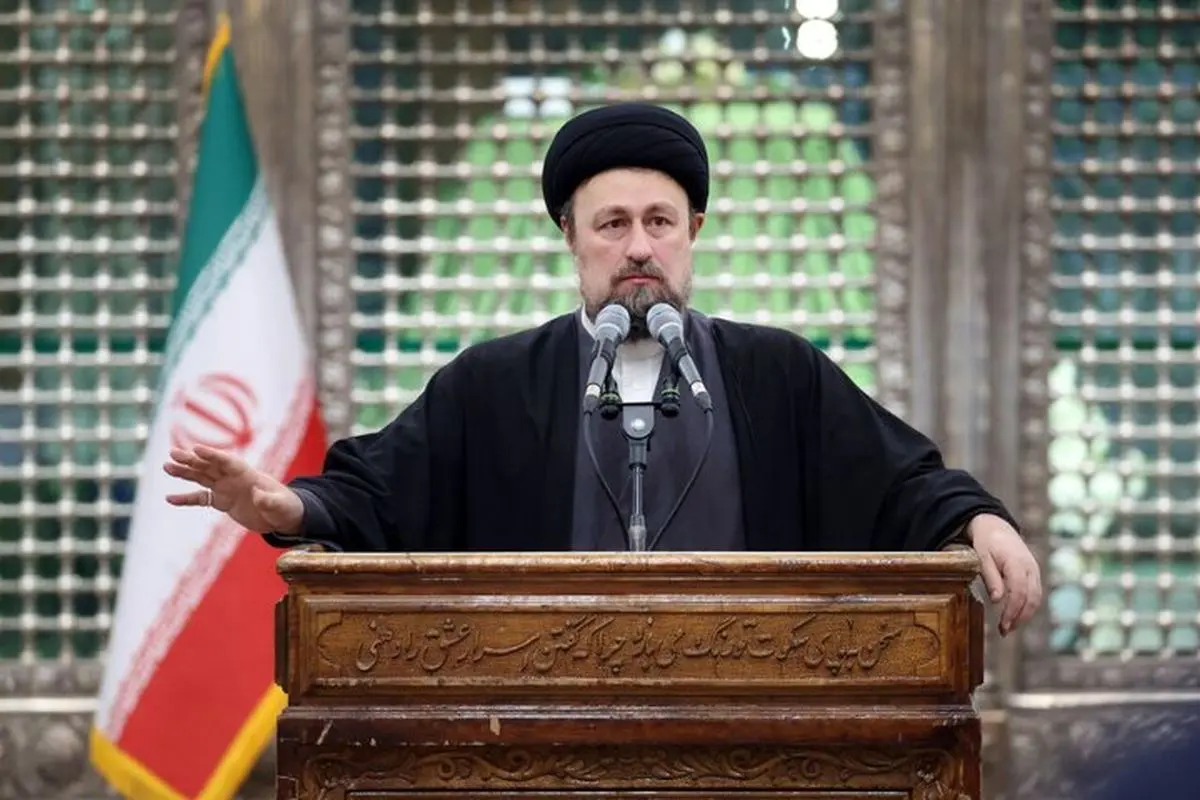SAEDNEWS: Seyed Hassan Khomeini emphasized the spiritual and societal significance of martyrdom, national cohesion, and sincere service to God during a meeting with Iran’s 14th government, highlighting lessons from Islamic history and recent national efforts.

According to Saed News Agency, quoting ISNA, Hojjatoleslam Seyed Hassan Khomeini, in a meeting and renewal of allegiance between Iran’s 14th government and the founder of the Islamic Republic on the occasion of Government Week, said: “From the perspective of the righteous, being born is to reach martyrdom and attain the station of a witness.”
He added: “Martyrdom has two levels: the declaration of testimony and the perception of testimony. A person sees something and later recounts it in court or elsewhere. A martyr has both aspects of testimony. For instance, in matters like divorce or transactions, two people are obliged to testify. Those who witness must testify. The perception of a martyr is, as the Imam said, ‘the martyr gazes upon the Face of Allah.’ The martyr sees beyond ordinary vision. The declaration of testimony of a martyr guides both in this world and the next. A martyr ensures that society does not lose its way.”
Seyed Hassan Khomeini, head of the Imam Khomeini Shrine, stated: “All Shia ceremonial identity is tied to Ashura, and our expertise is creating epic narratives from martyrdom. We live through martyrdom; the nation rises only after sacrifice, and our history is entwined with Ashura. That is why the Imam said, ‘Kill us, and our nation will awaken.’ At the end of the war, the prayer was: ‘May martyrdom not be closed to the nation.’ Martyrdom is a door; if closed, the source of our religious civilization is cut off.”
He continued: “The martyr reaches a position envied by the first and last human beings. Through their testimony, the martyr becomes a symbol, a guide, and a light so the path remains clear. Martyrdom is killing in the way of God and only achieves its truth when it is for God.”
Referring to the Battle of Uhud, he said: “The polytheist army equated the casualties of Uhud with those of Badr, but the Prophet clarified that our martyrs are in Paradise, and theirs are in Hell. Not all killings equal martyrdom; only those killed in the path of God attain this station. It is not the act of killing, but being in the way of God that matters. As Imam Khomeini said, ‘We are in the best of sacrifices.’ Either we achieve victory, or we are martyred.”
He highlighted lessons from the lives of the Imams, emphasizing that true value lies in acting for God. He stressed that even routine actions must be for God, otherwise they lack lasting significance.
On the government’s performance, he said: “The 12-day war against the Zionist regime highlighted the value of unity. The government left an excellent record; each member worked hard to achieve success. National cohesion arises from understanding causes and obstacles and was strengthened by social capital during crises.”
He concluded by stressing the importance of supporting the underprivileged, fostering production that benefits both producers and workers, and maintaining unity as a fundamental element for Iran’s future, particularly during the 1403 elections.

